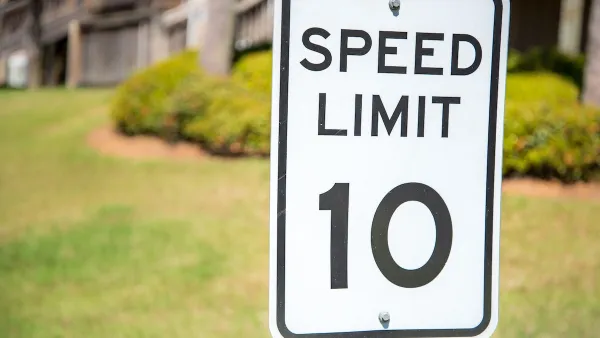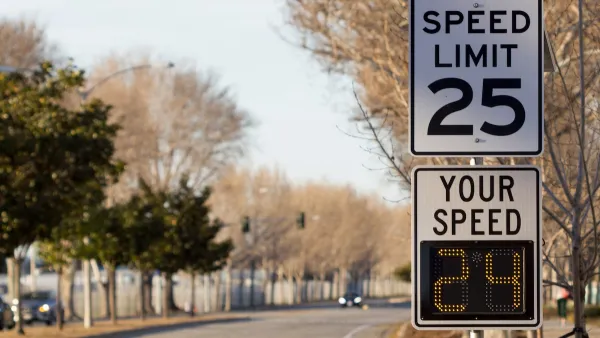As a number of Western States raise their speed limits, the costs of road maintenance, environmental damage, and lost lives keeps going up.

From Texas to Idaho, the speed limit on many rural roads and highways has jumped from 55 or 65 mph to 80 or 85 mph. Aarian Marshall reports in Wired that the increase in speed has led to consequences that can be measured monetarily or in lives lost.
A 2009 study published in the American Journal of Public Health estimates speed limit increases were responsible for 12,545 deaths and 36,583 injuries between 1995 and 2005. The number of rural interstate fatalities we can blame on higher speed limits jumped 9.1 percent during that time.
…
Faster driving means maintenance costs go up, too. In 2014, researchers working with Michigan’s DOT found that upping rural interstate speed limits from 70 to 80 mph would save 15.4 million passenger vehicle hours a year, but would also cost $163.88 million annually for the design’s estimated 25-year lifespan.
Marshall looks at the reasoning behind the support for higher speeds given the well documented costs. Some of the factors are cultural, others have to do with the politics of Western states, and then there's the great distances between places in rural America.
FULL STORY: Raising Speed Limits Is Irresponsible But States Keep Doing It Anyway

Planetizen Federal Action Tracker
A weekly monitor of how Trump’s orders and actions are impacting planners and planning in America.

Restaurant Patios Were a Pandemic Win — Why Were They so Hard to Keep?
Social distancing requirements and changes in travel patterns prompted cities to pilot new uses for street and sidewalk space. Then it got complicated.

Maui's Vacation Rental Debate Turns Ugly
Verbal attacks, misinformation campaigns and fistfights plague a high-stakes debate to convert thousands of vacation rentals into long-term housing.

In California Battle of Housing vs. Environment, Housing Just Won
A new state law significantly limits the power of CEQA, an environmental review law that served as a powerful tool for blocking new development.

Boulder Eliminates Parking Minimums Citywide
Officials estimate the cost of building a single underground parking space at up to $100,000.

Orange County, Florida Adopts Largest US “Sprawl Repair” Code
The ‘Orange Code’ seeks to rectify decades of sprawl-inducing, car-oriented development.
Urban Design for Planners 1: Software Tools
This six-course series explores essential urban design concepts using open source software and equips planners with the tools they need to participate fully in the urban design process.
Planning for Universal Design
Learn the tools for implementing Universal Design in planning regulations.
Heyer Gruel & Associates PA
JM Goldson LLC
Custer County Colorado
City of Camden Redevelopment Agency
City of Astoria
Transportation Research & Education Center (TREC) at Portland State University
Camden Redevelopment Agency
City of Claremont
Municipality of Princeton (NJ)




























